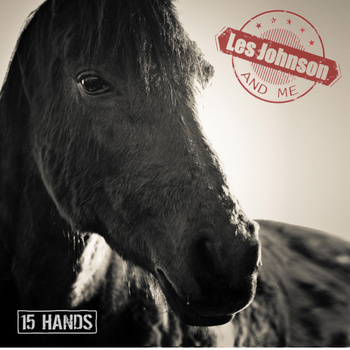Country (and Western) is a genre of music that has many associations (some long established) with Glasgow, and the West of Scotland generally. From country music clubs and Sydney Devine to the various country-inflected artists appearing at the Celtic Connections festival and the city’s own Americana festival, there are no shortage of instances where country music is represented in the city’s popular culture. In its homeland, as well as abroad, the genre has also seen a revitalisation in recent years, through its adoption of other monikers such as ‘roots music’, or ‘Americana’ and its slightly older cousin ‘alt-country’. These sub-genres are also well represented in the music produced by Glasgow-based music makers, going as far back to the days of The Humpff Family in the late 1980s. Of course, American culture is appropriated not just by Scottish music, and its representations are found in other art/cultural forms, including cartoon strips, novels, television and stage plays. These representations do not remain static either, but can undergo transformations, so creating something more identifiably ‘Scottish’ in character. Such changes, in relation to locally-produced country music, can make it difficult to view this music as simply being works of pastiche (or homage). More than this, in an age of globalisation and ‘cultural flows’ Glasgow even becomes a locale where American ‘country’ artists come to produce work – so we have witnessed Will Oldham (in Bonnie Prince Billy guise) recording with Trembling Bells and the Willard Grant Conspiracy being produced by Glasgow’s own Malcolm Lindsay.
Against this backdrop, the debut album by Les Johnson and Me, 15 Hands (Holy Smoke Records), makes perfect sense and deserves to attract a wide audience. Certainly it references, almost lovingly, the sounds of 1950s’ country – all double bass and reverbed tremloe guitar. This is not surprising given that it was recorded with the help of The Shiverin’ Sheiks, a Glasgow four piece who have crafted a very identifiable vintage tone to their music. However, it is the baritone voice of Kenny MacDonald, uniquely channeling the timbre of Johnny Cash or Tennessee Ernie Ford (but with an edge), that is one of the album’s greatest strengths. His voice particularly comes to the fore on the title track, and one of the album’s stand-outs, which revisits the old western stereotype of a cowboy being in love with his horse. Many of the album’s tracks incorporate such country tropes, including ‘The Morning After (the Night Before)’ which subverts the ‘disaster song’ where the characters may have ‘hitched up their wagons’ but they then ‘sing songs of guys in combat gear, standing naked on the hill’, and in the end it ‘all came down’. Equally, ‘Dear Marvin’ also plays with the country female/male duet – where the female vocalist (Katie McArthur) sings how she is going to ‘brain’ the male vocalist (Marvin of the title) – whose only response is a deadpan ‘once you have brained me there’ll be nothing to save me’. ‘Beckon Me to the Light’ incorporates religious imagery and, following the convention of religious-tinged country songs, is a plea for some sort of redemption. ‘Break Your Heart’ is also a track very much in the style of a 50s’ country ballad, replete with pedal steel guitar and ‘ooh-ooh backing vocal (courtesy of Monica Queen). ‘Someone Who Cares’, the album’s stand-out ballad, successfully utilises cliche, both within its very recognisable form and in its plea for an unrequited love from ‘the night that never ends’.
However, it would be wrong to categorise 15 Hands as an album that solely plays with country music stereotypes and cliche. ‘Just Ain’t Right’ provides colour to the soundscape, through incorporating a muted trumpet and a guitar solo befitting the Hot Club de France. ‘Silver Suit’, a love ballad with a twist, also extends the 50s’ style instrumentation by incorporating a Farfisa sounding organ and high female backing vocal (that wouldn’t be out of place in a David Lynch film). While ‘Bill’s Big Night’ is another track that foregrounds the baritone vocal, and is superficially a diatribe against a bird but, like all good songs, has more than one meaning. In all, the album’s twelve tracks are a satisfying addition to the country music being produced by Glasgow-based musicians, and help challenge the notion that a main marker of the genre’s authenticity is its place of origin.

Hey Strength in Numbers. Thank you very much for your kindness in taking the time to, so meticulously, to pick through all the songs and moreover for your really positive review and lovely comments. I am truly humbled by this. All a bit new to me as I never wrote a song ’til I was 46. Long time coming maybe. Thank you, thank you, again. You have made an cowpoke most happy. Kenny Macdonald (Les Johnson and Me)
My pleasure Kenny. I really enjoyed the album.